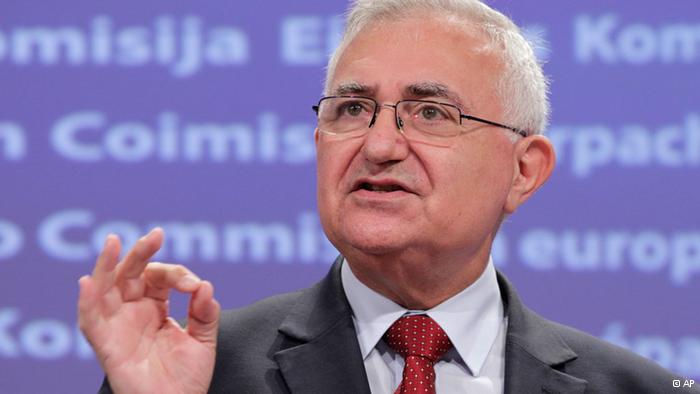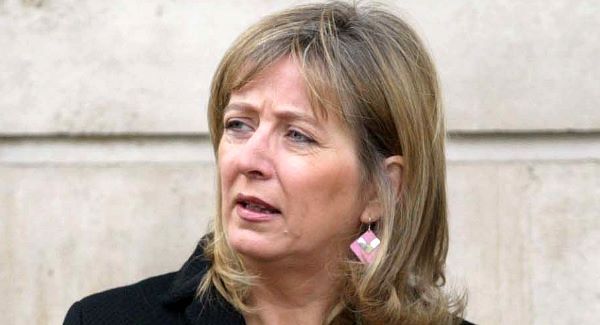European Commission chief Jose Manuel Barroso is to appear at the European Court of Justice in Luxembourg in a tobacco lobbying scandal which refuses to go away.
He is to answer judges’ questions as a witness in the tobacco case on Monday (7 July), before lawyers from both sides give their arguments on Tuesday.
The case was brought by former EU health commissioner John Dalli, who left office in disgrace in 2012 amid allegations of solicited bribes.
Barroso’s head of cabinet, Johannes Laitenberger, will be at his side in Luxembourg, as well as the head of the commission’s legal services, Luis Romero Requena. Dalli’s former head of cabinet, Joanna Darmanin, and former spokesperson, Frederic Vincent, will also attend.

Dalli wants the Court to annul Barroso’s request for his resignation on grounds he had secret contacts with Swedish Match, a mouth tobacco company.
He also wants the commission to pay a symbolic €1 in damages for the “non financial” harm he has suffered, and compensation for his loss of earnings as a commissioner.
But the Barroso side says there was no request for Dalli’s resignation and that he stepped down of his own accord.
“It’s all basically down to the circumstances surrounding Mr Dalli’s departure,” a contact at the Luxembourg-based court was reported as saying.
More broadly, Dalli maintains his innocence in the campaign by industry to water down the EU's Tobacco Products Directive.
The scandal led to accusations of unlawful meetings between Barroso’s inner circle and tobacco lobbyists, as well as mismanagement of inquiries by the head of the EU’s anti-fraud office, Olaf.
Dalli is not the only person who refuses to let the matter rest.

The European Ombudsman, Emily O'Reilly, late last month also opened a probe into allegations the commission failed to disclose meetings with tobacco lobbyists in contravention of United Nations rules.
As a signatory of the World Health Organisation's Framework Convention on Tobacco Control, the EU is required to reveal all meetings with the tobacco industry.
The convention’s preamble says that all parties “need to be alert to any efforts by the tobacco industry to undermine or subvert tobacco control efforts and the need to be informed of activities of the tobacco industry that have a negative impact on tobacco control efforts”.
O’Reilly’s probe stems from a complaint in May by the pro-transparency group Corporate Europe Observatory (CEO), which says top commission officials from the secretariat general and members of Barroso's cabinet held 14 undisclosed meetings.
The contested meetings include representatives from tobacco giant Philip Morris International, Swedish Match, and an unregistered lobbyist working for the European Smokeless Tobacco Council.
The commission says it complies with the UN rules and is transparent.
It says it disclosed all its meetings that took place in 2011 and 2012 between the tobacco industry and its directorate for health and consumer affairs (DG Sanco). It also says it provided information to the European Parliament on contacts with the tobacco industry.
"It is therefore wrong to speak about undisclosed meetings", says commission spokesperson, Pia Hansen.
Meanwhile, Sophie Petitjean, writing on Europolitics, wrote: "The start of the case on the resignation of former Health Commissioner John Dalli looks set to be lively: as the EU Court of Justice prepares to hear evidence from witnesses, on 7 and 8 July, there has been a new twist in the ‘Dalli affair’.
"The committee in charge of supervising the work of the European Anti-Fraud Office (OLAF, the institution which carried out the investigation into alleged trading of favours by the Maltese ex-commissioner) has confirmed it has given in to pressure from the body it is supposed to supervise. “We decided at the beginning of the week to publish the report on our inquiry on 4 July. However, OLAF has just asked our office not to execute our decisions,” explained Herbert Bösch (Austria), one of five members of the Supervisory Committee and a former MEP. “If we no longer have a secretarial department, how can we do our work! This is a real mess!”
The Supervisory Committee is composed of members from outside the EU institutions, who meet ten times a year and coordinate their work via a secretariat employed by OLAF. At the time of going to press, the inquiry report by the Supervisory Committee was still not available.
In April 2013, a shortened version of the inquiry committee’s report was leaked to the press. This document highlighted inconsistencies in OLAF’s inquiry with regard to the European Convention on Human Rights and the Charter of Fundamental Rights.
It also detailed problems in accessing data. MEPs José Bové and Bart Staes (Greens) have said that this case "leaves a bad aftertaste".(Quote made available by John Dali)